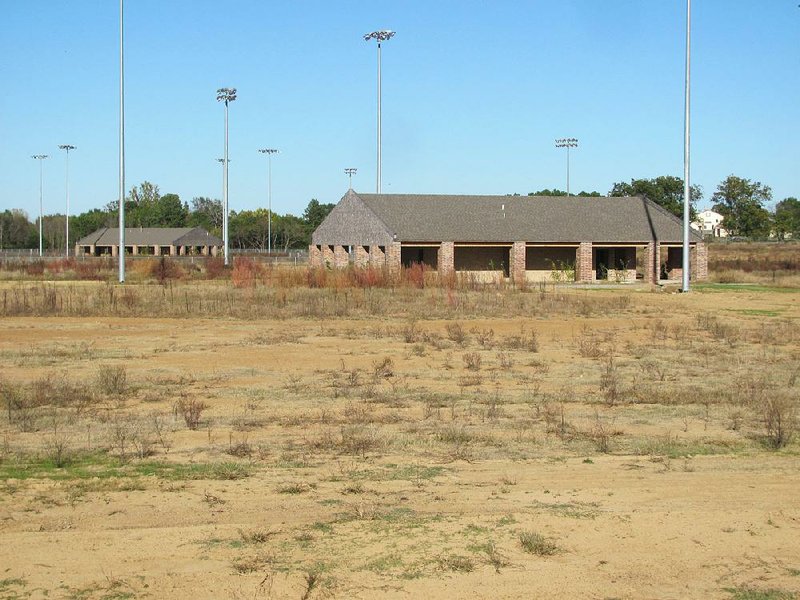FORT SMITH -- A judge has rejected an attempt by developers of the River Valley Sports Complex, which includes former state Sen. Jake Files, to dismiss the complex from a lawsuit that seeks payment for work done on the abandoned ball field project.
Sebastian County Circuit Judge Stephen Tabor denied a motion for summary judgment filed by an attorney for the River Valley Sports Complex Inc. The attorney had argued earlier this week that there were no issues of fact for a jury to decide and asked Tabor to drop the complex from the lawsuit as a matter of law.
It appears "to the court genuine issues of material fact remain, the motion is hereby denied," Tabor wrote in the one-page order filed Thursday in circuit court.
The River Valley Sports Complex is a third-party defendant in a lawsuit filed by four businesses against the city of Fort Smith that seeks payment of $200,120 for work the businesses did on the ball field site but for which they never received payment. Fort Smith, in turn, sued the River Valley Sports Complex, alleging that it was responsible for paying the businesses it hired to do the work.
The businesses -- B&A Electric Co., Megehee Fence Contracting LLC, Grimes Dozer Service Inc., and James Griffith -- contend that the River Valley Sports Complex was an agent of the city. With termination of the River Valley Sports Complex's agreement with the city over development of the project, the businesses turned to the city for payment.
In its motion, River Valley Sports Complex said the city violated the contract when it terminated the agreement in February 2017 and ordered cessation of work on the site.
It was undisputed, River Valley Sports Complex attorney Joe Byars argued, that a paragraph in the agreement said that if the city suspended work for 90 days through no fault of the River Valley Sports Complex, the sports complex could, with seven days' notice, terminate the contract and its obligations under the agreement.
Byars sent a letter to the city in August 2017 notifying it that the sports complex was terminating the contract under that section of the agreement.
The attorney representing the city, Michael Jones, told Tabor that Files had gone to City Administrator Carl Geffken in January 2017 and asked to withdraw the River Valley Sports Complex from the project. There had been a drop-off in the work on the project, and Files and Lee Webb, a co-developer on the project, could not provide a timeline to Geffken on when the work would be finished.
Jones said Files' request to withdraw constituted a waiver from the city's requirement to give seven days' notice and, as set out in the agreement, provided a second chance for River Valley Sports Complex to resume work before the city terminated the contract, which city directors did a week later.
The city also argues that the termination of the contract did not absolve the River Valley Sports Complex of its financial obligations, such as the $200,120 owed to the four businesses.
The city also seeks the return of $26,945.91 in state General Improvement Fund grant money that the city applied for at Files' suggestion. The money was awarded to an employee of Files for work to be done on the sports complex, but Files ended up with the money and spent it on his own purposes.
When they first proposed the project to city directors in 2014, Files and Webb envisioned a sports complex of eight tournament-quality ball fields with bleachers, concessions, lights, irrigation and other amenities that would attract teams from around the region and would be a boost for the local economy.
The two persuaded city directors to commit up to $1.6 million to the project, with Files and Webb raising the remaining project cost through donations of equipment, materials and labor. The total project cost was estimated at $4 million to $6 million.
The city had paid in $1.08 million at the time the project was halted.
A Section on 08/04/2018

